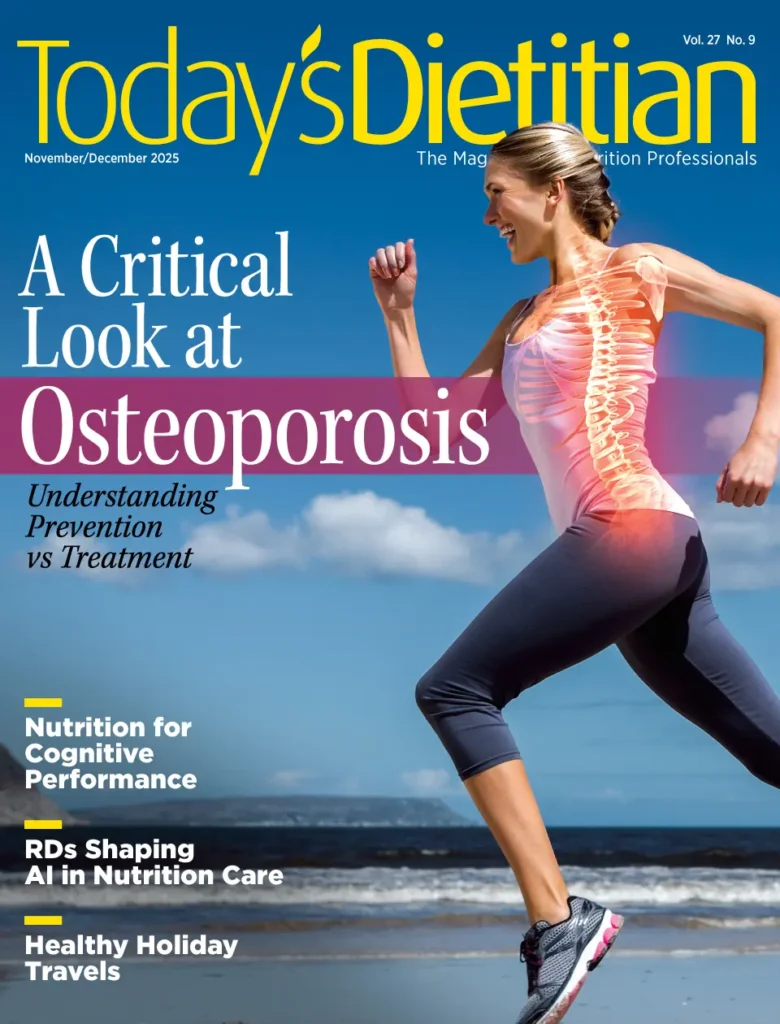A team of academic researchers has pinpointed how vitamin D3 and omega-3 fatty acids may enhance the immune system’s ability to clear the brain of amyloid plaques, one of the hallmarks of Alzheimer’s disease.
In a small pilot study published in the Journal of Alzheimer’s Disease, the scientists identified key genes and signaling networks regulated by vitamin D3 and the omega-3 fatty acid DHA that may help control inflammation and improve plaque clearance. Previous laboratory work by the team helped clarify key mechanisms involved in helping vitamin D3 clear amyloid-beta, the abnormal protein found in the plaque. The new study extends the previous findings with vitamin D3 and highlights the role of DHA.
“Our new study sheds further light on a possible role for nutritional substances such as vitamin D3 and omega-3 in boosting immunity to help fight Alzheimer’s,” says study author Milan Fiala, MD, a researcher at the David Geffen School of Medicine at UCLA.
For the study, scientists drew blood samples from both Alzheimer’s patients and healthy controls, then isolated critical immune cells called macrophages from the blood. Macrophages are responsible for gobbling up amyloid-beta and other waste products in the brain and body.
The team incubated the immune cells overnight with amyloid beta. They added either an active form of vitamin D3 called 1alpha,25-dihydroxyvitamin D3 or an active form of the omega-3 fatty acid DHA called resolvin D1 to some of the cells to gauge the effect they had on inflammation and amyloid-beta absorption.
Both 1alpha, 25-dihydroxyvitamin D3 and resolvin D1 improved the ability of the Alzheimer’s disease patients’ macrophages to gobble up amyloid-beta, and they inhibited the cell death amyloid-beta causes. Researchers observed that each nutrition molecule utilized different receptors and common signaling pathways to do this.
Previous work by the team, based on the function of Alzheimer’s patients’ macrophages, showed that there are two groups of patients and macrophages. In the current study, researchers found that the macrophages of the Alzheimer’s patients differentially expressed inflammatory genes compared with the healthy controls, and that two distinct transcription patterns were found that further define the two groups: The first group had an increased transcription of inflammatory genes, while the second group had decreased transcription. Transcription is the first step leading to gene expression.
“Further study may help us identify if these two distinct transcription patterns of inflammatory genes could possibly distinguish either two stages or two types of Alzheimer’s disease,” says study author Mathew Mizwicki, an assistant researcher at the David Geffen School of Medicine.
While researchers found that 1alpha,25-dihydroxyvitamin D3 and resolvin D1 greatly improved the clearance of amyloid-beta by macrophages in patients in both groups, they discovered subtleties in the effects the two substances had on the expression of inflammatory genes in the two groups. In the first group, the increased inflammation group, macrophages showed a decrease of inflammatory activation. In the second group, macrophages showed an increase of the inflammatory genes interleukin-1 and toll-like receptors when either 1alpha,25-Dihydroxyvitamin D3 or resolvin D1 were added.
More study is needed, Fiala says, but these differences could be associated with the severity of patients’ nutritional and/or metabolic deficiencies of vitamin D3 and DHA as well as the omega-3 fatty acid EPA.
“We may find that we need to carefully balance the supplementation with vitamin D3 and omega-3 fatty acids, depending on each patient in order to help promote efficient clearing of amyloid-beta,” Fiala says. “This is a first step in understanding what form and in which patients these nutrition substances might work best.”
According to Fiala, an active (not oxidized) form of omega-3 DHA, which is the precursor of the resolvin D1 used in this study, may work better than more commercially available forms of DHA, which generally are not protected against the oxidation that can render a molecule inactive.
The next step is a larger study to help confirm the findings, as well as a clinical trial with omega-3 DHA, the researchers say.
— Source: UCLA Health Sciences
Workshop to Advance Your Business and Communication Skills
Join the Dietitians in Business and Communications (DBC) Dietetic Practice Group for its first annual DBC Communications Camp in Napa Valley, California, on March 8 and 9. During the two-day intensive workshop, dietitians will learn the latest trends and cutting-edge communications and business skills needed to take their careers to the next level.
The DBC Communications Camp is targeted to a variety of nutrition professionals, including business owners, food and nutrition consultants, foodservice executives, private practitioners, media, public relations, and communications spokespeople. Click here to learn more about the workshop.
The workshop offers sessions on numerous topics from well-respected and recognized speakers. Click here to view the agenda.


